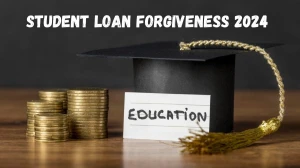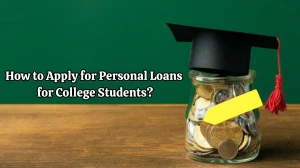
Best Secured Loans for Bad Credit
The best secured loans for bad credit include Upgrade (APR Range: 8.49% - 35.99%, Credit Score Requirement: As low as 560, Loan Amount: $1,000 - $50,000) and OneMain Financial (APR Range: 18.00% - 35.99%, Loan Amount: $1,500 - $20,000).
Published Aug 03, 2023 | Updated Dec 14, 2023 | 📖 11 min read
On This Page
Best Secured Loans for Bad Credit
When faced with a less-than-ideal credit score, securing a personal loan can be challenging due to high interest rates or qualification difficulties. In such cases, opting for secured personal loans, which require collateral such as a vehicle or savings account funds, can be beneficial. Lenders mitigate their risk by using the collateral, making it possible to work with borrowers across various credit profiles and provide more favorable loan terms.
Upgrade Secured Loans
Upgrade Secured Loans are a type of loan where borrowers are required to provide collateral, such as their car, to secure the loan. In the event of default, the collateral may be seized. Unlike unsecured loans, which do not require collateral, Upgrade personal loans come with various rate discounts and the option for direct payment to creditors. The lender sets a low minimum credit score requirement, making the benefits more accessible to a broader range of borrowers.
|
Specification |
Details |
|
APR Range |
8.49% - 35.99% |
|
Credit Score Requirement |
As low as 560 |
|
Loan Amount |
$1,000 - $50,000 |
|
Loan Terms |
24 months - 84 months |
Pros of Upgrade Personal Loans
- Upgrade is known for its relatively low credit score requirement, starting as low as 560. This makes it accessible to individuals with bad credit.
- Borrowers have the flexibility to choose repayment terms that suit their financial situation, ranging from 24 to 84 months.
- Upgrade offers the option to make direct payments to creditors, which can be advantageous for debt consolidation purposes.
- The lender provides a mobile app that allows borrowers to conveniently manage their loans on the go.
Cons of Upgrade Personal Loans
- Borrowers should be aware of origination fees, which can range from 1.85% to 9.99%. Additionally, late payment fees of up to $10 can apply if payments are missed.
- Upgrade only accepts passenger cars as collateral, meaning you cannot secure your loan with assets like RVs, motorcycles, ATVs, or commercial vehicles.
- While the APR range is competitive, the maximum APR of 35.99% is relatively high, so interest rates can be on the higher side for some borrowers.
Qualifications
- Upgrade offers secured personal loans in all 50 states, with the exception of Washington D.C.
- To apply for an auto-secured personal loan, you'll need to provide details about your vehicle, including its year, make, model, trim, and current mileage.
- Required documents include your current car registration card, insurance card or policy declaration, pay stubs, ID, signed limited power of attorney forms (which may need to be mailed), and potentially the car title.
- Upgrade only accepts personal passenger cars that are less than 20 years old, must be insured, free of liens or lease obligations, and have a clean title.
Upgrade Loan Use Restrictions
- While you can use an Upgrade secured loan for various purposes, including debt consolidation, home improvement, or large purchases, there are restrictions.
- You cannot use the loan for post-secondary education, investing, gambling, or any illegal activities.
OneMain Financial Secured Loans
OneMain Financial is a lending institution that prioritizes a borrower's ability to repay on a loan application. While the interest rates are high, OneMain is known for accepting borrowers with low credit scores. This lender offers personal loans with flexibility in payments and options to secure a loan using assets like vehicles.
Additionally, borrowers can enhance their chances of approval and secure a lower rate by adding a co-applicant for a joint personal loan. However, it's essential to note that both secured and joint loan options come with potential consequences, such as the risk of losing collateral for secured loans or the co-borrower's responsibility in case of missed payments on joint loans.
|
Criteria |
Range |
|
APR Range |
18.00% - 35.99% |
|
Credit Score Requirement |
Not disclosed |
|
Loan Amount |
$1,500 - $20,000 |
|
Loan Terms |
24 months - 60 months |
Pros of OneMain Financial
- OneMain Financial is known for potentially accepting applicants with bad credit.
- Unlike Upgrade, OneMain accepts a variety of vehicle types as collateral, including automobiles, trucks, motorcycles, boats, campers, and RVs.
- If you qualify for a loan with OneMain, you could receive your funds within one business day of approval.
- Secured loans from OneMain may have lower interest rates than its unsecured loans, depending on your credit history and other factors.
Cons of OneMain Financial
- OneMain Financial offers a maximum loan amount of $20,000, which might be limiting for some borrowers.
- Borrowers should be aware of origination fees, which can range from 1% to 10%.
- Like Upgrade, OneMain Financial also has a maximum APR of 35.99%, which can result in relatively high interest rates.
Qualifications
- OneMain Financial provides personal loans in 44 states for various purposes, with exceptions such as post-secondary education expenses, investing, gambling, illegal activities, and business or commercial expenses.
- When applying, you'll need to provide a copy of your ID, proof of residence, and proof of income.
- OneMain accepts a range of vehicle types as collateral, but your vehicle must be insured throughout the loan duration and appraised to ensure it has sufficient value to back the loan.
OneMain Financial Loan Use Restrictions
OneMain Financial has restrictions similar to Upgrade. You cannot use the loan for post-secondary education, investing, gambling, illegal activities, or business or commercial expenses
What is a Secured Loan?
A secured loan is a type of loan that requires the borrower to provide collateral as a guarantee of repayment. Collateral can take various forms, such as physical assets like property or vehicles or even liquid assets like cash.
This collateral serves as a security for the lender, reducing their risk in case the borrower defaults on the loan. If the borrower fails to make payments as agreed, the lender has the right to seize and sell the collateral to recover the owed amount.
Secured loans are utilized for both personal and business purposes and can encompass a wide range of loan types, including vehicle loans, mortgage loans, secured credit cards, and lines of credit. The terms, interest rates, and fees associated with secured loans can vary significantly depending on the lender and the type of collateral used.
Secured loans provide borrowers with access to financing, even if their credit history is less than perfect while offering lenders a level of security that unsecured loans do not provide.
What Credit Score is Needed for a Secured Loan?
The credit score needed for a secured loan can vary depending on the lender's specific requirements. Unlike unsecured loans, which heavily rely on your credit score, secured loans are backed by collateral, making lenders more flexible when considering applicants with lower credit scores. While there is no universally set credit score requirement for secured loans, some lenders may be willing to work with borrowers who have credit scores as low as 560 or even lower.
It's important to note that while a lower credit score may not necessarily disqualify you from obtaining a secured loan, it can still impact the terms and interest rates offered. Lenders may adjust the interest rate based on your credit history and overall financial profile. Therefore, it's advisable to shop around and compare offers from different lenders to find the best terms and rates that align with your credit situation and financial needs.
How to Get a Secured Loan With Bad Credit?
Getting a secured loan with bad credit can be a viable option to access financing when traditional unsecured loans are harder to qualify for. Here is a detailed guide on how to get a secured loan with bad credit:
Pre-qualify with Multiple Lenders
- Start by researching and identifying lenders that offer secured loans for individuals with bad credit.
- Many lenders allow you to check your loan rates online without affecting your credit score. Use this feature to get a sense of the interest rates and loan terms available to you.
- If you don't receive any online offers due to your low credit score, don't give up. Reach out directly to lenders and inquire if they are willing to work with you despite your credit history. Sometimes, speaking with a loan officer can lead to more personalized options.
Provide Required Documentation
- Once you've identified a lender and received a loan offer that meets your needs, you'll need to fill out an official loan application.
- Be prepared to provide the necessary documentation, which typically includes:
- Proof of identity (ID or driver's license).
- Proof of income (pay stubs, bank statements, or tax returns).
- Proof of residence (utility bills or lease agreements).
- Any additional documents requested by the lender.
Get Your Vehicle Appraised
- If you're using a vehicle as collateral for your secured loan, the lender may require an official appraisal to determine the vehicle's value. This appraisal ensures that the collateral has sufficient value to cover the loan amount.
- Ensure that your vehicle is insured throughout the duration of the loan. Most lenders will require you to maintain comprehensive insurance coverage on the collateral.
Sign Your Loan Agreement and Start Repayment
- If your loan application is approved, carefully review the loan agreement provided by the lender. This document outlines the terms and conditions of the loan, including the interest rate, repayment schedule, and any associated fees.
- Once you're comfortable with the terms, sign the loan agreement. By doing so, you commit to repaying the loan according to the specified terms.
- Repay the loan as agreed upon, typically on a monthly basis. Timely payments will help you rebuild your credit over time.
What Are the Alternatives to Secured Loans With Bad Credit?
When the road to traditional financing is blocked by a low credit score, exploring alternative avenues becomes essential. In this article, we delve into a variety of financing alternatives for individuals with bad credit, offering insights and options to help navigate the financial landscape.
Unsecured Personal Loans
If you have poor credit, you can explore unsecured personal loans from banks, credit unions, or online lenders. By improving your credit or applying with a creditworthy co-signer, you may qualify for a personal loan without needing collateral. This option can provide financial flexibility.
Credit Cards
Some credit card companies offer introductory periods with 0% APR for new cardholders. This can be useful for managing significant expenses over time. However, be cautious, as interest charges may apply after the promotional period ends.
Home Equity Loans and HELOCs
Homeowners can consider home equity loans or home equity lines of credit (HELOCs). These loans allow you to tap into your home's equity and often come with reasonable interest rates. Keep in mind that they are secured by your home, posing a risk of foreclosure if you borrow beyond your means.
What Are the Factors to Consider When Choosing a Secured Loan for Bad Credit?
When considering a secured loan for bad credit, several crucial factors should guide your decision-making process. These factors will help you select the right loan product that aligns with your financial needs and ensures a smooth borrowing experience. Here are the key factors to consider when choosing a secured loan for bad credit:
Loan Amount and Uses
- Assess your financial needs and determine the amount required for your specific purpose, whether it's buying a car, consolidating debt, or covering unexpected expenses.
- Check with potential lenders to ensure they offer loan amounts that meet your requirements.
Interest Rate
- Research and compare interest rates offered by different lenders. A lower interest rate can significantly reduce the overall cost of your loan.
- Understand that individuals with bad credit may face higher interest rates, but securing the loan with collateral can potentially lead to more favorable rates.
Repayment Terms
- Examine the repayment terms offered by lenders. The term of your loan directly affects your monthly payments and the total interest you'll pay over the life of the loan.
- Choose a repayment term that fits your budget and financial circumstances. Longer terms may result in lower monthly payments but potentially higher overall interest costs.
Collateral Requirements
- Determine what assets the lender accepts as collateral. Some lenders may only accept passenger cars, while others might allow RVs, motorcycles, or commercial vehicles.
- Ensure that the collateral you intend to use aligns with the lender's requirements and that you have the necessary documentation and insurance.
Customer Reviews and Reputation
- Research the lender's reputation by reading customer reviews and testimonials. This step can help you identify trustworthy lenders and avoid potential scams or predatory lending practices.
- Look for lenders with a positive track record of customer service and fair lending practices.
Fees and Additional Costs
- Inquire about any origination fees, late fees, or other charges associated with the loan. Understanding these costs upfront can help you budget accordingly.
- Some lenders offer discounts for automatic payments or existing bank customers, so inquire about potential cost-saving opportunities.
Flexibility
- Consider the lender's flexibility in accommodating your financial situation. Will they work with you if you encounter difficulties making payments?
- Look for lenders that offer options for early repayment or refinancing, which can help you save on interest and pay off the loan sooner.
Pre-qualification
- Start by pre-qualifying with multiple lenders to get an idea of the loan offers available to you. Pre-qualification typically doesn't impact your credit score and can help you gauge your eligibility.
Documentation and Application Process
- Understand the required documentation and application process. Be prepared to provide identification, income verification, and any necessary vehicle appraisals.
- Ensure you have all the necessary documents to expedite the application process.
Best Secured Loans for Bad Credit - FAQs
1. What is a secured loan?
A secured loan is a type of loan that requires the borrower to provide collateral as a guarantee of repayment.
2. What can be used as collateral for a secured loan?
Collateral for a secured loan can include assets like property, vehicles, or valuable possessions.
3. What is the benefit of a secured loan?
Secured loans often come with lower interest rates compared to unsecured loans due to reduced risk for lenders.
4. What credit score is needed for a secured loan?
Most lenders require a minimum credit score of 640 to 650 for a secured personal loan.
5. How does collateral work in a secured loan?
If the borrower fails to repay the loan, the lender can claim the collateral to recover their losses.




